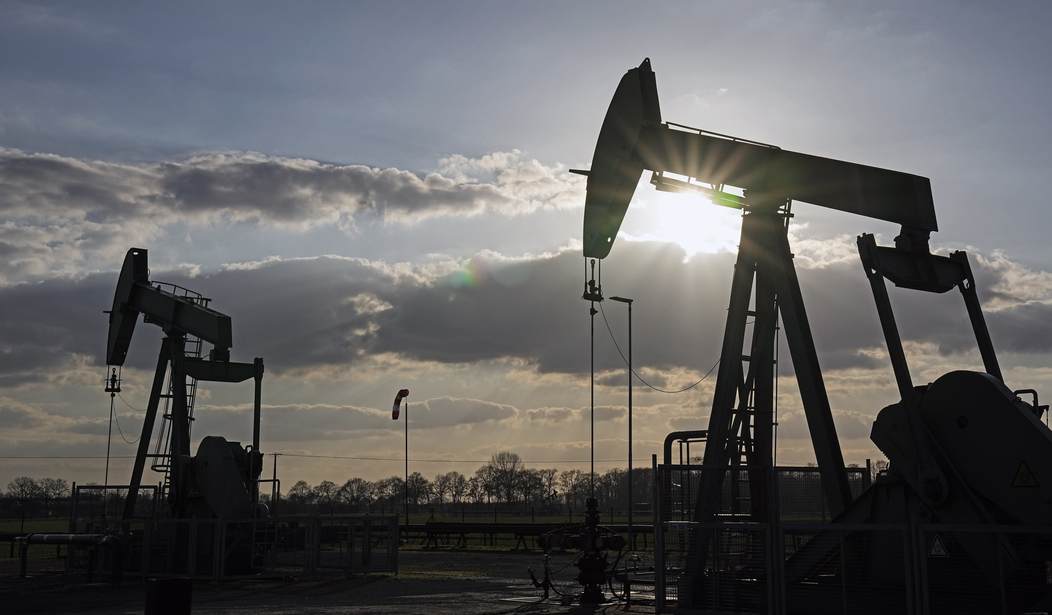When we discuss petroleum, it's common to think of it as a source for motor fuels: Gasoline, aviation fuels, diesel fuel, and so forth. That's logical because we see it on a daily basis, and the prices of those fuels affect everything we do. Only hours ago, as I write this, I topped off my wife's big Ford Excursion and, even after eight months of Trump energy policies, was chagrined to note that here in the Great Land we're still paying over $3 a gallon for gasoline. Diesel for my big pickup is a tad higher.
There's a lot more to it than that. Petroleum, despite what the "Stop Oil" shouters would have us believe, is one of the most essential commodities in the world today. Petroleum not only provides fuels, but also raw materials and precursors for many, many other materials that we simply can't obtain any other way.
A recent article by two men who are in a position to know, energy consultant Ronald Stein, P.E., and chemical engineer Yoshihiro Muronaka, P.E., presents some interesting specifics.
It is both timely and impactful to deepen public and governmental policymakers’ understanding of electricity, including the essential role of fossil fuels that are driving global development, with the products and transportation fuels that are dependent on those same fossil fuels.
In less than a few centuries, 250 groundbreaking hydrocarbon processing and refining techniques were discovered. Their impact continues today, benefiting the 8 billion people living on Earth.
Today, over 6,000 products derived from petroleum enrich our lives. They have reduced infant mortality, doubled global life expectancy from around 40 to over 80 years, and made it possible to travel anywhere in the world by plane, train, ship, or car — drastically reducing weather-related deaths to nearly zero. These were all unimaginable in societies before 1800.
We might note that, should the shouters get their petulant way and petroleum production cease for keeps, that's precisely where we'd be - before 1800.
Here's the reality:
Today, “Net Zero” policymakers setting “green” policies are oblivious to the reality that so-called “renewables” ONLY generate electricity but CANNOT make anything. In addition, everything that NEEDS Electricity, like iPhones and computers, is made with petrochemicals manufactured from crude oil, coal, or natural gas.
- Electricity came after oil, as all electrical generation methods, including hydro, coal, natural gas, nuclear, wind, and solar, are built with products, components, and equipment made from oil derivatives manufactured from crude oil.
- All the transportation fuels for the more than 1,400,000,000 cars and trucks in the world, the 50,000 merchant ships, the 20,000 commercial aircraft, and the 50,000 military aircraft are made from raw crude oil.
- All 60 million EVs currently in the world today are also built with the products, components, and equipment that are made from the oil derivatives manufactured from crude oil.
- Eliminating crude oil would not only eliminate electricity but also the over 6,000 products in demand by hospitals, airports, communications, and the 8 billion people on this planet. This would paralyze virtually all transportation, including cars, trucks, EVs, ships, and aircraft.
I spent 30 years in the medical device industry. I worked with companies that made life-saving products, from sterilized syringes to cardiac bypass machines, from replacement hip, knee, and shoulder joints to autotransfusion machines, from beds to cardiac catheters. None of those products would be possible without materials derived from petroleum. Ethylene oxide (EO), a gas used to sterilize medical devices, is also derived from petroleum. Modern medicine would not exist without petroleum.
Without petroleum and petroleum by-products, none of these things would exist:
- Ammonia, essential for modern agriculture
- Asphalt, for paved roadways
- Cellular phones, which rely on petroleum for the plastics in their cases, as well as many internal components
- Cortisone
- Glycerin, which has a wide variety of industrial applications
- Nylon, used in rope, clothing, and automobile interiors, among other things
- Computers
- Insect repellents/insecticides
- Many pharmaceuticals, made from precursors derived from petroleum
- Roofing shingles
- Almost anything made with plastics
- Oh, and let's not forget solar panels and wind turbine blades
There are countless more.
Read More: Energy Win: Alaska's NPR-A Is Open for Business
Winning! Big Drilling Lease Sales on for Alaska, Gulf of America
President Trump and his administration are taking steps to ensure our domestic production is ramped up. Here in Alaska and elsewhere, leases are on the market, and drill, baby, drill is the word of the day. But it's important to understand that there is so much more to petroleum than the prices at the gasoline pump. At present, in the Western world, we live longer and healthier lives than any people in human history.
We enjoy access to a wealth of information, so much so that it represents the third great revolution in human lifestyles, the first being the Agricultural Revolution, the second the Industrial Revolution, and now, the Information Revolution. Heat and cold-related deaths are lower than they've ever been. Infant mortality is lower than it's ever been. Our automobiles are cleaner, safer, more reliable, and more efficient than they've ever been. The same goes for commercial airliners.
All of this is due to petroleum. None of this would be possible without petroleum. That's what people have to understand, if we are to forgo a return to, as the article linked above notes, a pre-1800 lifestyle.















